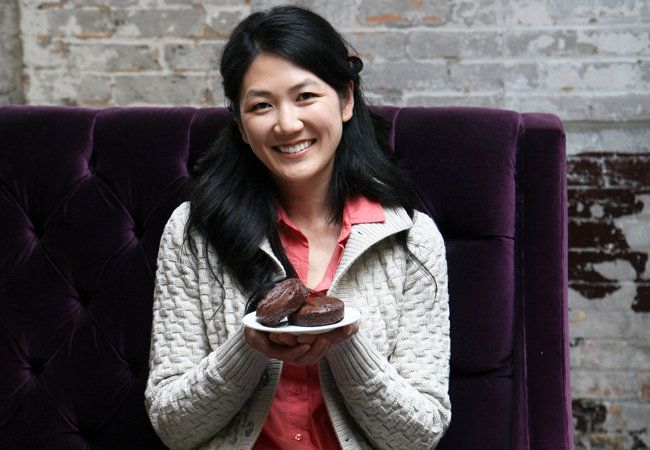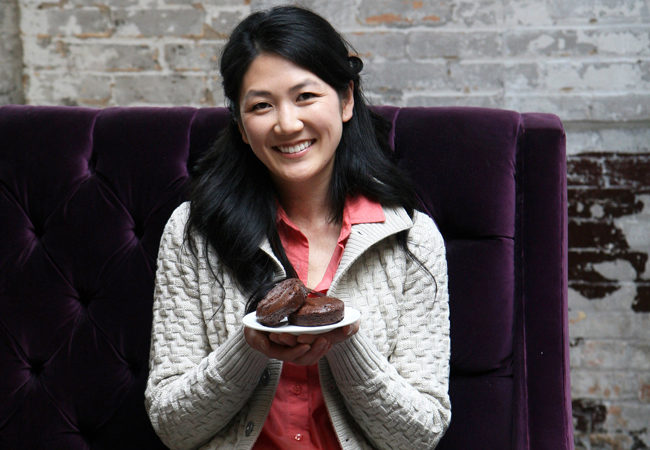
The baker Emily Marks is also an artist. She is deeply conscious of the details around her. At The Bachelor Farmer, she revels in the restaurant’s mission to build relationships with small farms and producers. She notices when the hue of her egg yolks changes her lemon curd to neon yellow, and when the shells change from thin to thick and brittle.
She’s rewritten recipes to account for the different types of wheat in her Baker’s Field flour. What one baker could view as an annoying inconsistency, Marks finds inspiring. She understands that the grain supply changes with the weather and the farmers.
As a pastry chef, she focuses on what’s in season or what she has preserved over the summer. As an artist, she plays with the tangible elements of her world, bending flavors, pushing limits. But she’s eager to play with more than your taste buds; she wants to provoke a feeling in you or a memory of something you’ve had in the past. Her medium is food, but her work is in nostalgia.
UPBRINGING
HEAVY TABLE: What was your culinary upbringing like?
MARKS: My parents adopted me from Korea when I was four months old. I grew up in White Bear Lake. My earliest memories are mostly around food. My parents were hardworking and didn’t prepare fancy food for us, but my dad had a routine of reading cookbooks every morning like someone would read the newspaper. When I was old enough, I started reading them with him.
In one of my most vivid childhood memories, I was looking up at our kitchen countertop, every inch filled with strawberries from Pine Tree Apple Orchard. To this day, every time I smell strawberries, my mind flashes back to that memory, and I think of the summers our countertops would be filled with the berries that my sister and I would help my dad make into quick jams to put on toast and to give as gifts.
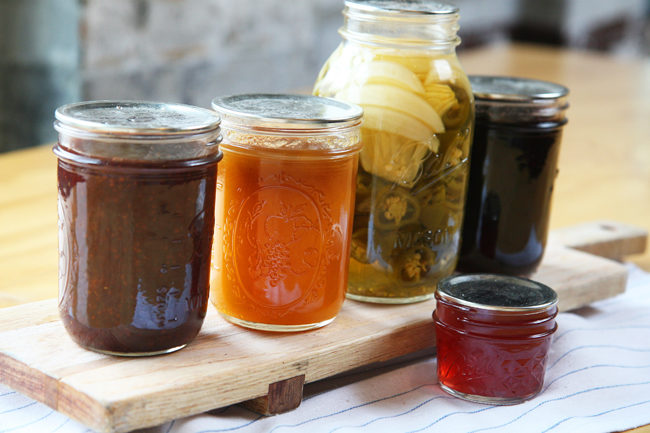
In high school, I read cookbooks and food magazines and watched a lot of public TV like Martha Stewart and Julia Child. I got kitchen appliances for birthday gifts. I still have my tiny white KitchenAid mixer I’ve had for twenty years. It’s super old-school and has been through a lot, but it still works just fine. Every time I pull it out, I think of how small and old it is. I still love it. After a day working in a commercial kitchen with huge equipment, coming home to bake with it feels a bit like using an Easy-Bake Oven.
HEAVY TABLE: Did you know what you wanted to be when you grew up?
MARKS: From a young age, when someone would ask me what I wanted to be when I grew up, I’d tell them I wanted to stay at home and have a lemonade stand in the yard. When high school graduation came along, I was less sure. I really didn’t like school or the idea of more of it. I was involved in the fine arts in high school and thought it was fun, but I still didn’t feel like I was passionate enough about anything. Culinary school should’ve been obvious, but it was not on my radar.
I ended up going to college at Northwestern, a super-tiny Bible school in St. Paul. It was nice at the time, and had a small art department with really great instructors. I focused on drawing and painting and gravitated toward nature in my work. At the end of college, I was more into abstract expressionist and minimalist art; the things that look easy but are super complex. It’s the same for me now with baking.
In college I think I kind of drove my roommates crazy. We had these tiny kitchenettes in our dorm rooms where I made kimchi once. I probably stank up the whole hall. My roommates didn’t make fun of me, probably because I also often baked them treats. I remember hand-whipping cream for a whipped-cream topping and my roommates were completely amazed.
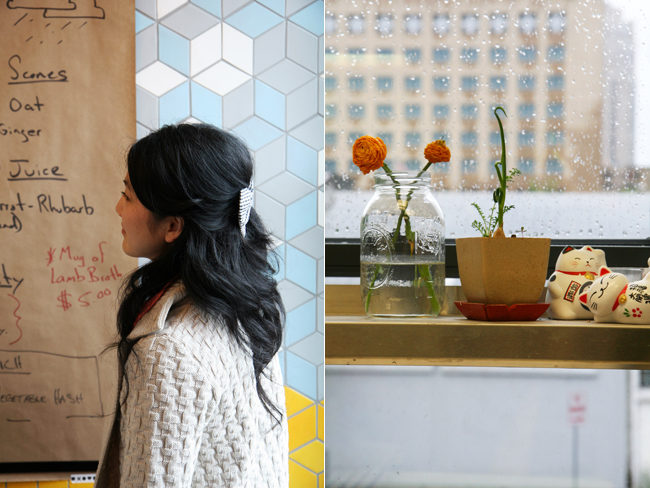
I opened the cafe in Club 3 Degrees in downtown Minneapolis in college, which is where I met my husband, Sterling Marks. We had mutual friends who were in a band, and we were both in school at the time. I would’ve never seen myself with him then. He was great, but was a broke band guy with long hair, who didn’t seem to take care of himself. After the first time we met, we met again at a music festival a month later and remained friends. We’d talk on the phone and eventually realized we seemed to be more than friends. We talked a lot, considering how much of it was long distance. Over winter break, we hung out, and things hit off.
When I graduated from college, Sterling was headed back to his hometown, a small town in Oregon. I didn’t know what I wanted to do for work, so I moved to Oregon with him. After a year in Oregon, in 2006, we got married. We married in Minnesota and also had a ceremony once we were back in Oregon. After our wedding, I managed a Starbucks for a couple of years, but I started hating my job. Out of stress, I cooked. I was always cooking, baking, or fermenting something.
I had made a friend in Oregon who was thinking about culinary school and asked me to check it out with her. I had no intention of going back to school. I was newly married, and the school was in Portland, 70 miles from where I lived. But as we toured, I fell in love. All I could think of was, “Sterling is not going to be okay with this.” My friend called him on the spot, and asked, “If this is what Emily wants to do, will you support her?” He said yes, I said yes, and it just kind of fell in my lap. Last minute, my friend decided not to go, and I went by myself. As soon as I started, I knew it was right, but I will say I wasn’t expecting it.
FORGING A PATH
HEAVY TABLE: How did you claim your path in the culinary world?
MARKS: After graduation and my internship in 2009, the economy was terrible. Eighty percent of our friends had been laid off. The economy took a bigger hit in Portland than in Minneapolis. Sterling was fed up with his job, and we needed a change. We moved back to Minnesota because the economy seemed more stable. I started working at the Bikery in Stillwater.
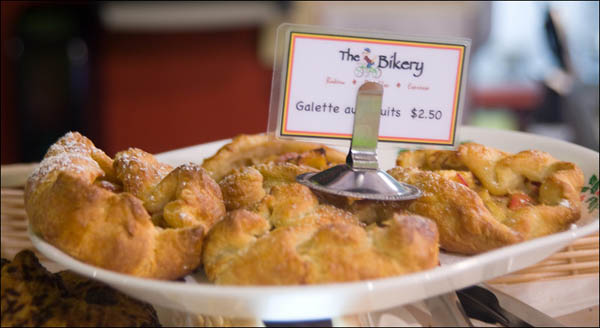
It was a bike shop and cafe, and I worked overnights. The kitchen was tiny, cramped, and dark, and I was there by myself in the middle of the night. So I welcomed the change of the big, open, and bright kitchen of Rustica in Minneapolis when I was hired. I loved it. Everyone cared so much about the product and attention to detail. I was proud of the way we put out consistent product day in and day out. I worked on croissants and Danishes and eventually moved into doing more pastries.
Rustica makes all naturally leavened breads. Bread has its own time clock. Our bread bakers would get there early, shaping and proofing the bread dough. That’s all they’d do. Everything is based on what time the bread wants to be ready. With pastry, you have some of that with croissants and Danishes, but for the most part you’re in control of the situation. Bread has a natural rhythm that you work on day in and day out to perfect your craft, but with pastry, things change a lot more, and you have more flexibility. I stayed at Rustica for three years until I felt like I needed something different.
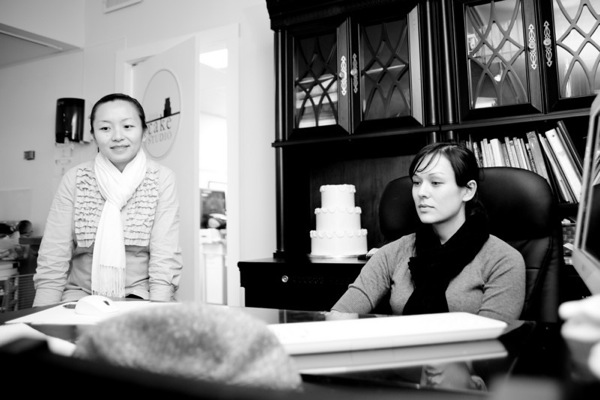
I landed at Sweets Bakeshop, which is now closed, but while I worked there I helped re-brand the company, design new cupcake flavors, and compete on Cupcake Wars. By the time the show aired, the shop wasn’t open anymore, but it was fun to fly out to LA for the weekend to see the studio and set up. When else are you going to be in a cupcake competition? All I remember making was a dragon-fruit-and-lychee flavored cupcake for the first round.
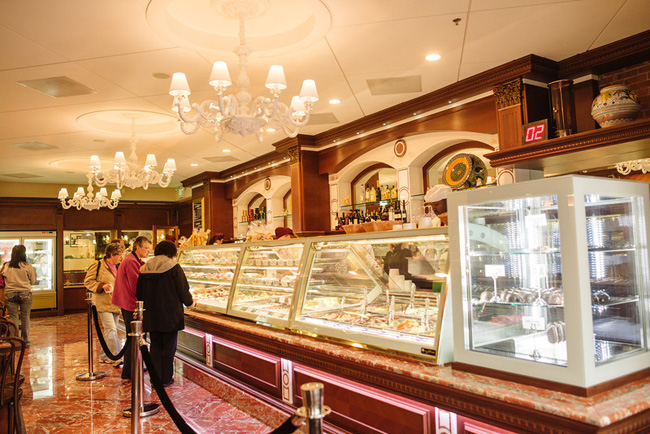
My last job before coming to The Bachelor Farmer was at Cossetta. The kitchen is in the basement, and it’s big and high volume. I was underground all day under fluorescent lights. It was a change of pace, and I needed it at the time. I started right before Cossetta opened its pasticceria, and it was wonderful for me to see how a place is built out and started from the beginning.
We made hundreds of different desserts, and everything was made from scratch. Tiramisu, cannoli, bonbons and truffles, gelato, and pastries. I managed 20 people in the pastry department. I had managed people and inventory on a smaller scale before, but this was completely different. It was like putting a giant puzzle together.
I was managing people and inventory and production and training, figuring out which skills each person had, what equipment was available, and who should be on which project. Towards the end when our executive chef left, I was taking on more managerial work rather than cooking.
I was burned out and overwhelmed by managing too many people at once. I got to a point where I wanted to simplify everything. Cossetta imported really high-quality ingredients. Our pistachio paste was the finest you could use, and it comes from Italy. We made fruit tarts year round with strawberries, blueberries, and raspberries. There’s nothing wrong with that, but it was so many products and people to keep track of. I felt disconnected and wanted something that resonated more with me. I wanted to pare down, channel local producers, and follow the seasons.
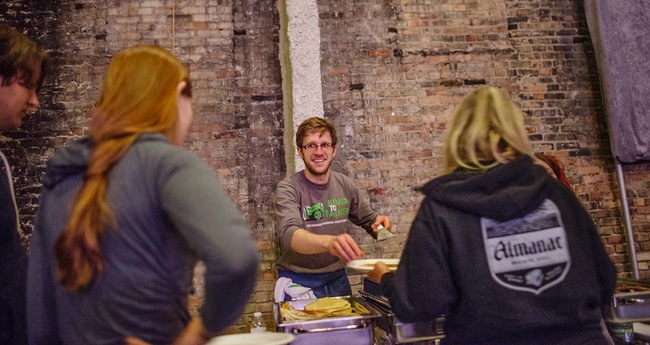
Paul Berglund and I worked together at Rustica. When I was ready to move on from Cossetta’s, I reached out to him. The Bachelor Farmer happened to be hiring. I had a lot of discussions with Paul before I even interviewed. We talked about our food philosophies and the directions we wanted to head. I didn’t know it would be the right fit; it just worked out that way. It all lined up.
In the pastry kitchen, on the upper floor of The Bachelor Farmer, we have windows on two sides of the room. Light pours in all day. We look out into the neighborhoods of the North Loop. I feel so spoiled. I started just before the cafe at The Bachelor Farmer opened. It was a lot of long days, and I tend to push myself a little too hard. Whenever you start something new, it’s a lot of prep behind the scenes until you get the system down. I am lucky I had an understanding husband for all the double shifts I worked for months on end.
FINDING A VOICE
HEAVY TABLE: What has molded your tastes, sensibilities, and ethos on food and sourcing?
MARKS: In Oregon, we had so many friends with hobby farms or friends raising their own animals. We had friends with orchards on their properties, and they would press their own apple cider if they had enough apples. My mother-in-law taught me about canning and preserving seasonal ingredients. Wild blackberries grew everywhere, and she and I would make jam from them together. We canned spicy dilly beans. We made applesauce.
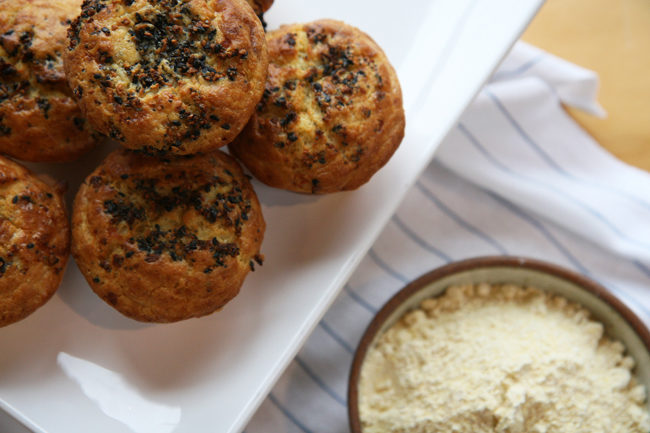
My taste in food was shaped by these people caring so much about the earth and with such a close connection to how food is grown. I was immersed in it and found it fascinating. The Bachelor Farmer has strong relationships with small farms and producers. Many have been there since before I started, and I get to continue that. If I find a special ingredient from a local vendor, I can bring it in, but most of the time the relationship is there, and it’s my job to keep it thriving.
HEAVY TABLE: What does it mean to you to be authentic?
MARKS: To me it means being simple and relatable. I want to stay in line with what’s in season or what I’ve preserved over the summer. Last summer a bunch of peaches came in from an Amish farm, and we made peach preserves and canned a bunch of sliced peaches we used in desserts.
I want to make things that are comforting and relatable. Authenticity is a series of conversations, it’s what we’re craving at the moment and it’s our childhood memories. We experiment and we critique until it ends up being something we’re happy with. We test things dozens of times until we’ve got the version we’re satisfied with. It’s always different than the original intent, but our hope is always that it provokes a lot of feeling. Taste is in your memories and in nostalgia.
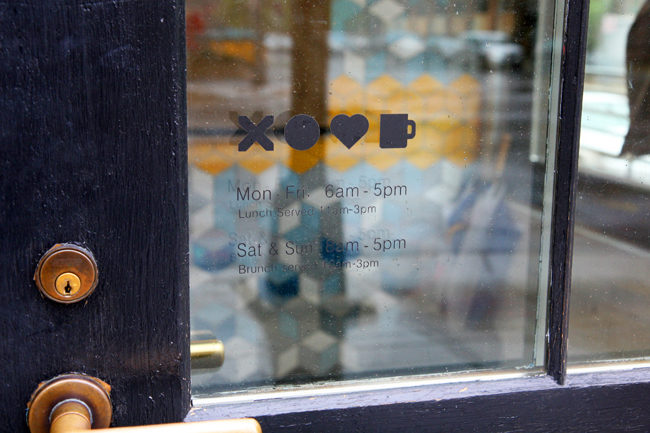
Everyone has a different perfect chocolate cake that grandma would make. It’s hard because it’s real and it’s not real. You can’t please everyone, but you can gather ideas and take the best parts of each person’s memory and re-create it into a new product. You can bring back the taste memory in people’s minds. It’s tricky to do. There’s a misconception and a deceptive simplicity around something like a brownie, for example. It’s perceived as being really easy, but it took a really long time to get a brownie we were happy with. When people get mad if we pull something off the menu, that’s when I know I’ve succeeded.
INSPIRATION + BALANCE
HEAVY TABLE: In the midst of chaos, what do you crave to re-center and find balance?
MARKS: It’s not all sprinkles and rainbows in the kitchen, but we do try to have some fun and put on good music and have dance parties when we need a boost. I’m a big fan of Dolly Parton. I saw her in concert last year. As a team, we listen to everything from Top 40 hits to Motown, and even Disney music sometimes. My assistant Louis makes themed playlists for us to listen to. The last one was for Mother’s Day and included any song or artist he could find with mom or mama as part of the lyrics or artist’s name.
What helps is when everyone has a say. It means so much more to everyone involved. It should be fun, and even though we’re making pastries all day it’s a lot of work and still a job. The more excited I can get my team on making a project their own, the better result and the more fun we’re going to have along the way.
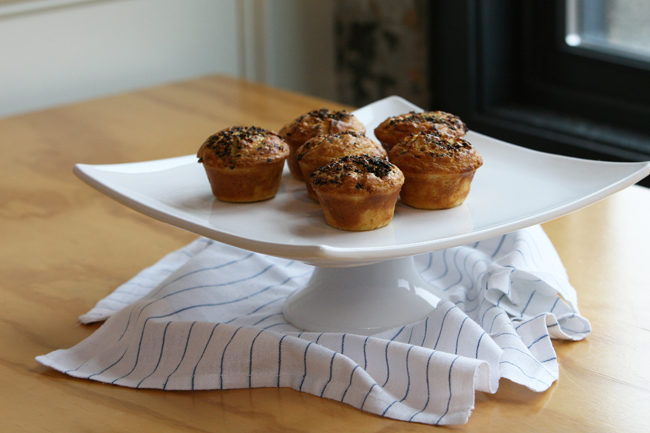
At home, away from the kitchen, I really like Bikram yoga, but the schedule rarely lines up right. If I could, that would be the most calming thing for me because all I can focus on is breathing. I also spend time with my husband or with our “framily.” Time with my husband is totally re-centering. My friends are super supportive, but also tell me like it is. It’s like having a reality check with complete support.
I watch food documentaries like Chef’s Table. I’m especially into Jeong Kwan. She has so much intention and respect for everything. But if I’m burned out on food, I watch Korean dramas. There’s an app called Drama Fever, and it has Korean programs with subtitles. They’re usually really cheesy, but if they’re action packed then my husband will watch with me. Sometimes they’re actually filled with intense food scenes that motivate me to want to make something.
HEAVY TABLE: When you’re inspirationally tapped, do you have a sense of what brings back your vitality?
MARKS: I’m most inspired when I have time off and the weather is nice to go on a picnic with my friends. If I have a weekday off, I’ll pack a lunch and meet my husband at Capella Tower park and we’ll sit outside and eat lunch. It’s one of my favorite things. Especially around the holidays, when it’s so busy in the food world that there’s not a lot of time to make something special for the people I actually care about. They’re always an afterthought. When I actually have the time to plan something out to cook for the people I love, I have a resurgence of energy to do my job well.
CREATING IN TODAY’S WORLD
HEAVY TABLE: What is the relationship of social media to what you do?
MARKS: Social media is bringing so much awareness and attention to the food world. I’m entertained by it, but at the same time I feel like media turns the food world into something its not. Celebrity chefs glorify the industry when it’s really hard and long work. It’s satisfying to see someone enjoy, but it falsifies what is actually happening in the kitchen. I like that it gets home cooks excited about making complicated things for themselves at home. I admire people being self-taught and having the drive to explore.
On a personal level, I don’t get too much into social media. Occasionally customers will tag me in photos they’ve taken, and a part of me is really excited that they thought the food was good enough to photograph and eat, but another part of me feels strange about it, almost like it’s lifting it up too high. At the end of the day, it’s just something sweet to treat yourself to or share with somebody.
It’s easy to be bombarded with content. I’m inspired by other people’s content, but I’m not competitive about it. I’m not competitive by nature. I always have ideas floating around in my mind, I’m constantly thinking about food, but I have always been thinking about food anyway. There were lots of conversations with my husband early on in our relationship where he was like, “Do you ever not think about food?” or, “Can we have a conversation not centered around food?”
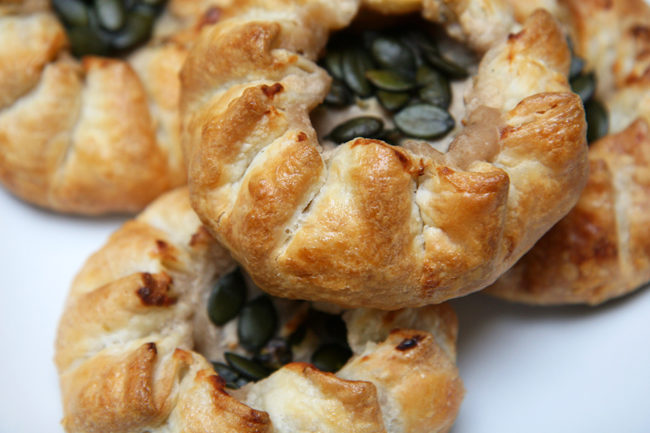
HEAVY TABLE: What is your recipe-development and/or creative process?
MARKS: I think a lot about the details. That comes with my art background. The things I focused on in art, the things that looked easy, actually had a lot more history and nuance behind them. My baking is that way. I could decorate elaborate cakes, create fanciful pastries, or be technical or molecular, but that’s just not my style. I think a lot of my drive comes from having an art background. I like tinkering with materials, learning how far you can push things within a certain boundary, and taking inspiration from what’s around me.
It’s similar to the art world in that you have what came before you and you have the community, but you have to motivate yourself to explore an idea or complete a project. You create the deadlines and the boundaries because you’re doing it for yourself. The reason this industry is fascinating to me is that it helps me keep learning. That’s the big thing. There’s always something new to learn, a new way of thinking, or a new flavor or ingredient.
When I develop a new recipe, I am layering textures and flavors together. It’s second nature for me to start grabbing at things. It’s a collaborative process, where the team is talking about an idea or nostalgic taste we want. We start with a base idea and slowly build it. We remember past recipes in our arsenal, we discuss recipes from chefs we admire, and then we test them out and find what we like. The texture of this, but flavor notes of this, and then you piece it together like a puzzle — and with lots of practice. You keep flavor profiles in your mind, like chocolate or extracts, so when you need something that has a little more this or that, you know which direction to go in, and you try it. If there’s an idea that keeps coming up in conversation, we’ll find time to make it happen.
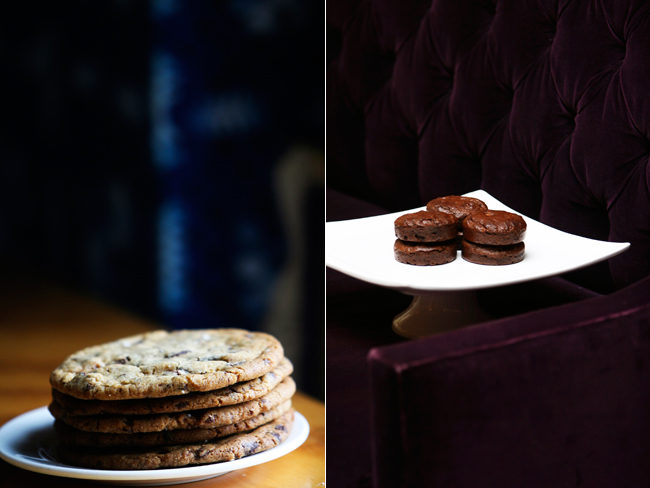
HEAVY TABLE: Any creations you’re particularly proud of?
MARKS: Right now the brownie in the cafe is like, seriously good. I’ve been tinkering with brownies for a long time. Topping other renditions is daunting. I put a lot of work and thought into it. It seems super simple and stupid. Making brownies was a pastime for a girlfriend and me in high school. We’d buy brownie mix from a box and pick anything in the baking aisle — pieces of toffee, caramel, nuts, coffee, peanut butter — and we’d stick it in the oven and hope for the best. I don’t always want chocolate, but when I do, I want it to be a lot of chocolate. It’s super fudgy.
I really like the edge pieces of brownies. Some people love the middle, but when we make them in a round mold, the center is still really gooey. I use extra-dark cocoa powder, dark chocolate, and milk chocolate. The cocoa powder is used in the dry ingredients, and the dark chocolate is melted into the batter with butter. There are bits of milk chocolate stirred in at the end. It is my pride and joy right now.
SOCIAL JUSTICE
HEAVY TABLE: How do you keep an eye towards social and food justice in our community?
MARKS: Personally, I have waves of conflict. Pastry is a luxury, to have something sweet. Not everyone can indulge. I often wonder, too: Am I doing the right thing to make treats full of butter and sugar? I’ll turn to my husband, and he’ll remind me, “You’re not responsible for their lives; be happy that you bring people joy.” And then I come to terms with it.
HEAVY TABLE: Are there any particular causes or organizations that are dear to you?
MARKS: I belong to Women Who Really Cook, which is a community of women here in the Twin Cities who work in all different areas of the food industry. It was started by Sue Zelickson and is a place for women to network and connect. The group meets once a month and is hosted by a different group member each time. It’s my ear to what’s happening in our food scene, it’s a source of inspiration and keeps me connected.
HEAVY TABLE: How do you hold true to your ethics while balancing the needs of your farmers?
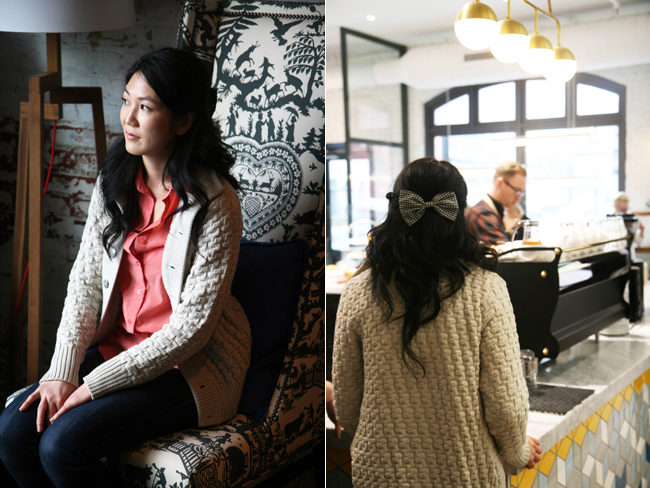
MARKS: It’s my job to uphold my values, the values of the company, to highlight flavors of our region, and then translate that to our customer base. My foremost thought is flavor. We want to pick purveyors who respect region and seasonality. When we’re recipe testing, we seek local ingredients, and if they don’t have what we’re looking for, we go the next tier out, which might mean the broader Midwest rather than Minnesota. We think about what’s coming into season. We have a local network of farmers we’ve been working with for a long time, and part of that is being able to request special produce.
Our oldest farmer partner is Pork and Plants. They supply us with pork, eggs, and produce. In the winter, we use a lot of vegetables from their greenhouse. Every single Thursday we get 2-3 pigs that are used in the restaurant and for sandwiches and croissants in the cafe. The pigs are butchered in house. It’s inspiring to see a whole animal broken down and utilized in numerous ways in the kitchen. The restaurant renders the fat and boils the bones down to make broth. We’ve experimented with using this pork fat in kolaches.
Our veggie gallette changes every couple of months, depending on what’s in season for our farmers or what’s canned. Right now it’s a cream cheese dough, white bean puree, pickled jalapeño jelly started from a crab apple base, and pepitas. The peppers came from Pork and Plants and the butter from Hope Creamery. Previous gallettes have used tomato jam, preserved peaches, or rhubarb: anything in season or that I’ve canned. The gallettes tend to be a little of what we’re craving and a little of what’s in season.
ERIC KREIDERMACHER OF PORK AND PLANTS: The greatest thing about The Bachelor Farmer is that they are willing to pay the farmer a living wage for his or her products. There are a lot of places that are not as willing to do that. Thankfully, we have been lucky from our farming side; however I know of other farmers who have had tough years (weather related) and TBF has helped them out with fundraisers and such to assist them in their bad times.
This is quite commendable from my side. Over the years, I have definitely seen more and more customers becoming curious about where their food comes from and how it is raised. There are places like TBF that definitely are putting their money where their mouth is in terms of supporting local farms and showcasing these farms to their customers; however, there are a lot of places that talk about supporting local farmers because that is the current buzz word, but in all actuality only work with local farms when their price competes with or beats the food-service companies’ prices (which is completely not supportive of the local scene).
I have eaten at TBF many times, and each time has been quite a treat to have them serve me my meat and produce. I’m constantly amazed at what they can do with the same ingredients I have at my disposal at home. Truly delicious.
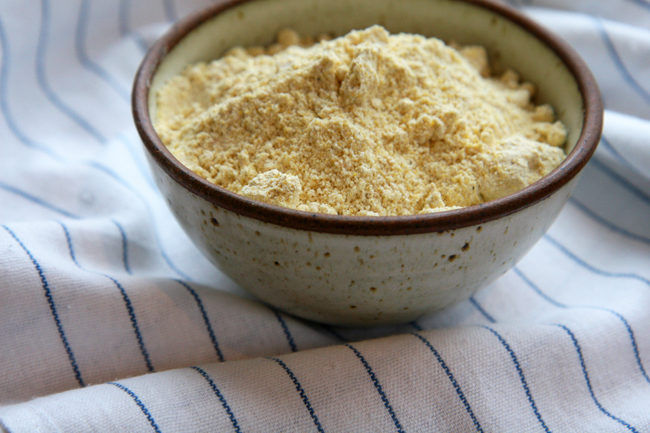
HEAVY TABLE: Tell us about the flour you use.
MARKS: Our flour is from Baker’s Field. Steve Horton, the owner, is a veteran of Rustica, where Paul and I both worked. When The Bachelor Farmer opened the cafe, we reassessed our bread program, and Steve consulted with us. Baker’s Field is a local flour mill producing local and freshly milled flours. When we began working with his flour, we modified our original recipes. We use Baker’s Field flour in our whole wheat bread for our toast courses. We reformulated our chocolate chip cookie, our blueberry oat scone, and our chocolate and ham and cheese croissants. The chocolate croissant tasted so much better, with a deeper, nuttier flavor. We were surprised and happy because we weren’t sure it would work. The challenge and the opportunity of using this product is that it changes because the grain’s flavor changes with the weather and the farmer. We roll with it; we see the nuances, and we tweak the recipe. I’ve been really excited to work with Baker’s Field and feel really fortunate using such a unique product. Nobody else, or very few are using fresh flour.
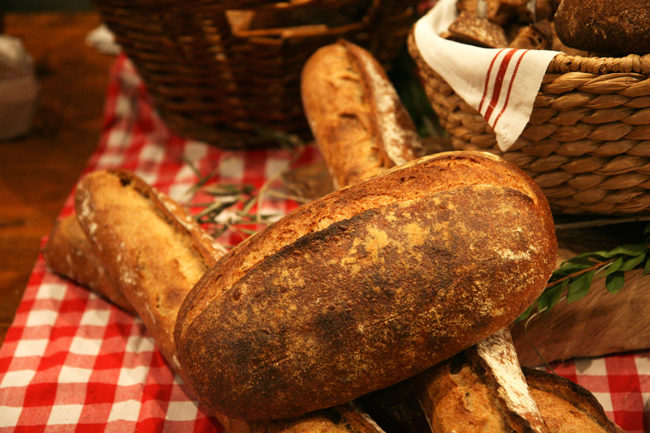
STEVE HORTON OF BAKER’S FIELD FLOUR: We started our mill as a way to taste and experience the grain of the Upper Midwest. Milling flour on a stone mill enables us to keep most of the nutrients and flavor components intact that are characteristic of grain. The Bachelor Farmer, Emily in particular, has supported our efforts by purchasing our flour and producing bread and pastries from them. We hope that her products have a unique profile that is not found in pastries from large commercial flours. Because The Bachelor Farmer brings these grain characteristics to the forefront, we, then, are able to reach more people.
HEAVY TABLE: Where do you get your eggs?
MARKS: We source all of our eggs locally, and most of them from Hidden Stream Farm. It’s beautiful to watch how the eggs change in season. The yolks seem to be brighter in the spring, and the shells vary from thick to thin and brittle in the winter. I notice when the hue of my egg yolks changes my lemon curd to neon yellow. An awareness of those differences is what ties me to our farmers.
LISA KLEIN OF HIDDEN STREAM FARM: We have worked with The Bachelor Farmer for quite a few years. We are a food hub of sorts. We provide The Bachelor Farmer with eggs, but serve as a hub for other farmers to bring their vegetables, fruit, and honey. Our farmers are of all different skill levels and sizes, from the very young to the more established with bigger volumes. By purchasing from us, TBF supports our farming community in Southeast Minnesota.
NOW
HEAVY TABLE: Can you share a few of your favorite creations at the cafe, the ingredients and how they come together?
MARKS: Our chocolate toffee cookie uses homemade toffee made with Hope Creamery butter, sugar, and a bit of salt cooked until they caramelize into the color of peanut butter. If anyone on the team is feeling frustrated, it’s a good project, because we pour the toffee out on a sheet pan and let it harden, and then with a spoon we smash the toffee into little bite-sized pieces. We blend the toffee with bits of chocolate and Baker’s Field flour and sprinkle the cookies with flaked sea salt.
Our corn muffin came out of a conversation about cornbread and the trend of bakeries around the country doing surprise fillings inside of muffins. We tested multiple versions. Our customers freaked out when we made these. It starts with a cheese ball made from cream cheese and cheddar. We plop this into the muffin batter and it melts in. We also shred and mix a hard goat cheese into the Baker’s Field cornmeal based batter. After they’re golden brown on top, the muffins are sprinkled with an everything bagel seasoning.
HEAVY TABLE: What have you learned from cooking/creating that has added to your understanding of yourself?
MARKS: Patience. Patience for myself. Patience for making mistakes and being OK with them. Patience to rethink a situation for another person. It’s humbling to have someone say, “I don’t know what you’re talking about.” I may think I’ve explained something perfectly, but I’ve completely missed the mark. It helps me remember that not everyone thinks the same way I do. You meet people where they’re at. You respect their strengths and what they can bring to the table. Every person I’ve met has a thing they’re really good at and a thing they’re really bad at.
This interview has been edited for clarity.


